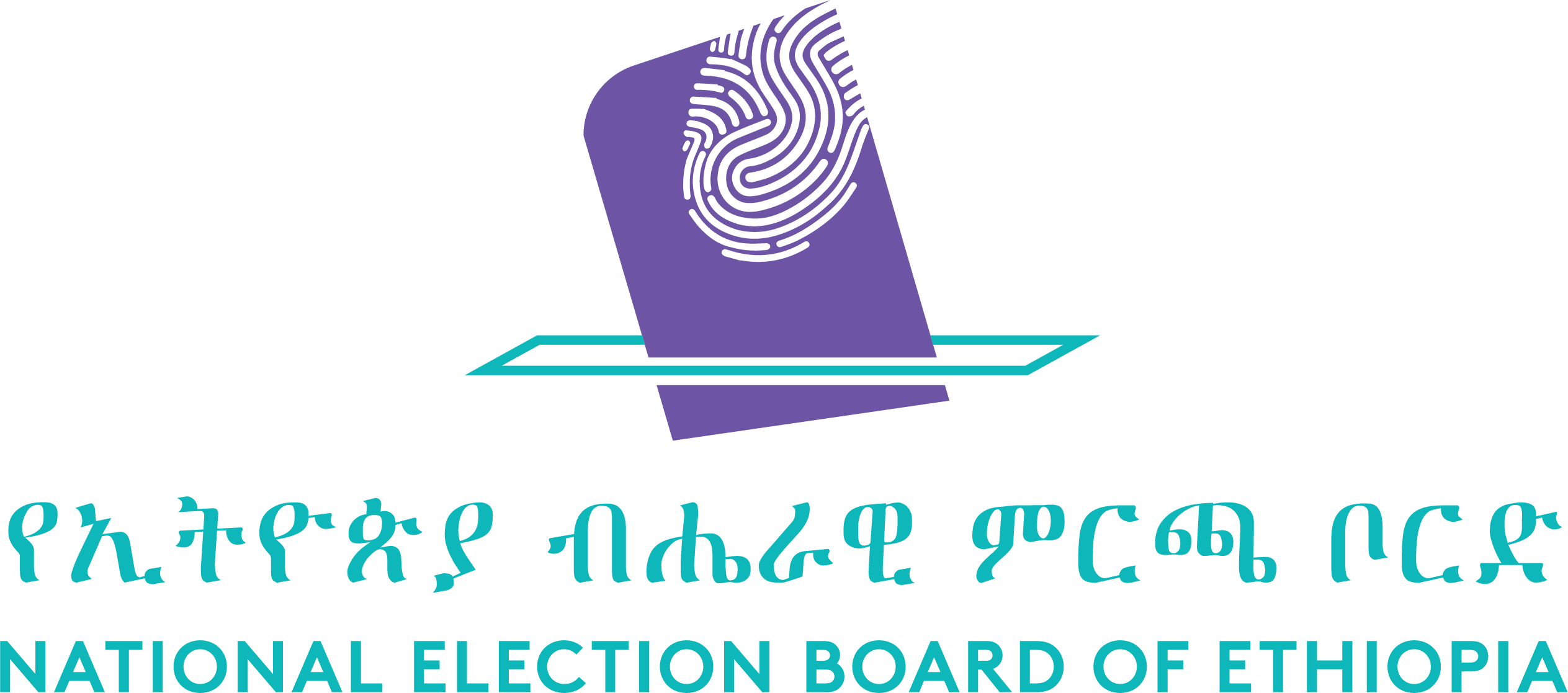The National Election Board of Ethiopia (NEBE) held discussions with the United States Agency for International Development (USAID)-Consortium for Elections and Political Process Strengthening (CEPPS) and EU/ECES
The National Election Board of Ethiopia (NEBE) recently hosted a roundtable discussion with the coordinating bodies of the United States Agency for International Development (USAID)-Consortium for Elections and Political Process Strengthening (CEPPS) and the European Union-European Centre for Electoral Support (EU/ECES).
The roundtable aimed to acknowledge the valuable contributions of development partners, reflect on the substantial progress NEBE has made to date, and encourage ongoing collaboration to ensure further advancements in Ethiopia's electoral processes.
In her opening remarks, NEBE Chairperson, Mme. Melatwork Hailu, highlighted the Board’s continuous efforts to strengthen its institutional capacity to conduct transparent, credible, and fair elections. She emphasized that the institution's progress in making the electoral process more efficient and democratic would not have been possible without the strategic support and partnership from international development partners.
Mme. Melatwork expressed sincere gratitude and appreciation for the multifaceted support provided by USAID/CEPPS and EU/ECES. She specifically noted the various initiatives funded by USAID/CEPPS, including capacity-building training for thousands of regional election officials, information technology experts, and polling station staff. This support also extended to enhancing civic and voter education across regional areas, conducting surveys to assess the operational status of regional election offices, and strengthening the Ethiopian Political Parties Joint Council.
On the other hand, the EU/ECES support was instrumental in training local election observers to ensure the effective deployment of observers at polling stations. Additionally, the EU/ECES provided logistical support, including covering transportation costs for election materials, establishing a system for resolving election-related disputes, and assisting in the formulation of NEBE’s communication strategy and policy.
During the discussion, Mme. Melatwork outlined the Board's expectations for continued support from development partners following the local elections and the upcoming 7th general national elections scheduled for 2018. She identified key priority areas for future assistance. These included the development of various software solutions to modernize the election management process, the provision of technological tools such as tablets and servers, and the promotion of inclusive participation from marginalized groups, including women, youth, persons with disabilities, and internally displaced persons (IDPs).
During the roundtable discussion, development partners USAID/CEPPS and EU/ECES took the opportunity to present a comprehensive overview of the assistance they have provided to the National Election Board of Ethiopia (NEBE) in recent years. Both organizations detailed the scope and impact of their contributions, which have been instrumental in supporting the efforts of NEBE to strengthen the country’s electoral processes and ensure the conduct of free, fair, and credible elections.
In their remarks, the development partners also underscored their continued focus on strengthening Ethiopia’s electoral system beyond the immediate elections. Both organizations emphasized the importance of sustainable capacity building, particularly at the regional and local levels, where elections are often managed. They expressed their determination to support NEBE’s long-term goals The discussion concluded with a session where participant raised questions and answers as well as feedback were provided by the Board members and development partners leaders.
Mme. Melatwork underscored the Board’s commitment to organizing a joint roundtable discussion with all development partners in the future. This forum will provide an opportunity to evaluate the impact of the support received, collectively address any challenges faced, and take prompt corrective actions to ensure continuous improvement in the electoral process.
In summary, the roundtable discussion served as an important platform to reflect on the progress made, reaffirm the commitment to strengthening Ethiopia’s electoral system, and outline the future support required to ensure the successful conduct of upcoming elections.





















